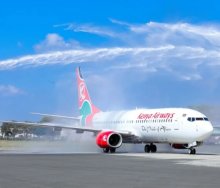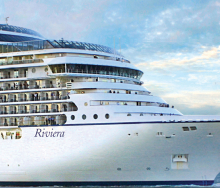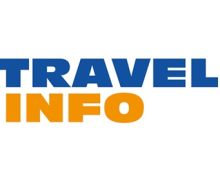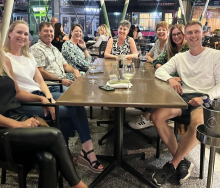PhotpcapBooking more on the same budget
CORPORATE agents are
likely to find themselves
in the impossible
situation of having a smaller
budget at their disposal,
yet having to make it go
further than before, putting
on pressure to negotiate
extremely effectively.
Monique Swart, founder
of the African Business
Travel Association (Abta),
says travel buyers need to
be more realistic when it
comes to their budgeting.
“For the most part, travel
costs are increasing, so to
expect to travel in the same
way from one year to the
next without increasing your
budget is, firstly, unrealistic,
and secondly, puts a lot of
pressure on TMC partners,
particularly those that are
already doing all they can
to ensure every opportunity
for savings is identified and
utilised.”
Earlier this year, TNW’s
sister publication, Travel &
Meetings Buyer, ran a survey
where 200 corporate travel
buyers and bookers provided
details of the size of their
travel budget for 2018,
compared with last year.
The majority (42%) said
their budget would remain
the same, while 38%
expected an increase and
20% a decrease.
Despite this, most
respondents (61%) would
be expected to book more
business travel by this year,
while just 23% thought levels
would remain steady and
16% predicted a decrease.
Making conditions even
trickier, the vast majority of
respondents (85%), said they
expected overall travel costs
to rise in 2018. Respondents
said they expected
accommodation rates to
increase the most, followed
by car rental.
Containing costs
So, what can agents do to
make their clients’ budgets
stretch further? According
to Aadil Esack, gm: Product
and Marketing for XL Travel,
the solution isn’t simply
to negotiate harder with
suppliers.
“This has usually already
been done to the best of
the TMC’s ability in terms of
finding a mutually beneficial
commercial agreement
between the relevant
parties.”
Instead, he says, agents
are going to have to utilise
the tools at their disposal –
particularly technology – to
maximise travel bookings
while keeping costs on a par
with what they were before.
One of the ways technology
can assist agents is through
providing data that may
prove useful when discussing
preferred rates with
suppliers, adds Monique.
She also suggests that
agents focus on compliance
and ensure minimal leakage
within air and hotel spend.
“This is of vital importance
to ensure corporate deals
remain in place, as well as
better planning pre-trip to
reduce last-minute bookings.
“Once all avenues have
been utilised, agents then
need to start looking at
reducing classes of travel
and accommodation from
business to economy and
suites to standard rooms
wherever possible,” says
Monique.
Photocap: Refurb for Cresta Mowana
Cresta Mowana Safari Resort and Spa in Kasane, Botswana,
commenced a renovation project in April. Changes will
include a renovation of its rooms, the redesign of the
Serondella Restaurant, Savuti Bar and the boma area, and
an update of the reception area and conferencing facilities.
The property will remain open and upgrades will be done in
stages to ensure minimal disruption to guests.
Major upgrades for African Sun
DURING its annual
financial results
announcement, African
Sun detailed a number
of planned upgrades
and refurbishments that
are already under way
or scheduled to begin
at its properties across
Zimbabwe. These include:
The rebuilding of the Great
Zimbabwe Hotel and the
addition of a modern
conference centre to the
property.
Following improvements
made to the exterior of
Caribbea Bay Resort, the
focus will shift to interior
improvements with an
artist’s impression already
completed.
The refurbishment of one
floor of the Holiday Inn
Mutare is under way.
Increasing the conference
capacity at The Kingdom
at Victoria Falls by 400.
Exterior painting of the
Elephant Hills and The
Kingdom at Victoria Falls.
Refurbishment of
the public areas for
Monomotapa Hotel.
All these projects are
planned to capitalise on
increasing traveller numbers
due to Zimbabwe’s improved
airport infrastructure, as
well as an anticipated boost
in business travel as a
result of the completion of
the Beit Bridge-Chirundu
Highway project.
Are online booking tools
destroying transaction fees?
ONE of the main features
of corporate self-booking
tools is functionality enabling
corporates to book simple
routings themselves without
having to send the request
via their corporate agent. But,
with many agencies reliant
on transaction fees for their
revenue, what impact has
this had on profitability and
are there opportunities for
consultants to make up for
this lost remuneration?
According to Aadil Esack
of XL Travel, solutions vary
across different groups and
consortiums. “Sometimes
TMCs present the self-booking
tool offering to their client at
a minimal cost to make up for
lost transaction fees,” he says,
emphasising that there are
other models for generating
revenue – it’ll just come from a
different channel.
Monique Swart of Abta
agrees. “Agents are still
earning transaction or
management fees for many of
the services they provide and
many corporates still prefer
to use their TMC for more
complicated bookings. This
is where TMCs need to strive
to identify additional services
they can offer their clients that
they may be willing to pay for.”
She says data is one of
the major services being
considered by TMCs and
clients due to the strategic
advantage it can give them
when managing their travel
programmes.
“What’s important to
consider,” says Aadil, “is if
you want to retain a client or
grow your clientele you’re going
to need provide an OBT. You
shouldn’t look at the tool as a
cost, but rather an investment
to secure future business. If
you are tendering for business
and you don’t offer a selfbooking
solution, you’re going
to be the odd one out.”
Corporates want more from TMC tools
A new A new global study by the
Expedia Affiliate Network,
which included respondents
from Europe, the Middle
East and Africa, focused on
how TMCs were keeping up
with the corporate traveller,
investigated the popularity
of online booking tools and
uncovered some interesting
results.
It found that while 52% of
frequent corporate travellers
said they were booking all
their own travel, only 20%
said they were doing so
through an approved tool or
agency.
To emphasise this point,
68% said they booked half or
more business travel outside
their employer’s approved
tools, with 31% stating that
this was because the tool
offered no benefits. It seems
that consumer-focused online
travel agencies (OTAs) and
direct channels are tempting
travellers to book outside
their managed programmes
as they are more userfriendly.
The findings of the Expedia
Affiliate Network study were
that TMCs needed to offer
consumer-like, well-supported
booking tools in order to
recapture the market that is
increasingly opting to book
outside these channels.
What is the price of personalisation?
PERSONALISATION is one
of the current buzzwords in
the corporate travel industry,
with many surveys and
reports indicating a growing
expectation that corporate
travel agents address and
cater for individual traveller
preferences. But how does
this tie in with agents’
mandate to book within policy
and keep costs from spiralling
out of control?
Personalisation is a
balancing act between choice
and control, says Monique
Swart of Abta. “Giving more
freedom to make their own
choices will reduce traveller
friction, but could open a
Pandora’s box regarding
tracking the travellers from
a safety perspective, and
tracking spend.”
Choice is key
Monique says: “For me,
the key is to be more
strategic within their choice
architecture; making sure
travellers have more options
than usual but still ensuring
that those options are
trackable. A good place to
start would be identifying
where travellers could have
more choices that are less
impactful on the policy
and budget, and where the
policy is non-negotiable. By
having some freedom to
move, travellers will be more
respectful of areas that are
non-negotiable.”
Indeed, research has
shown that personalisation
can actually play a key role
in managing costs and
motivating travellers to book
through traditional channels
and stay within policy.
A study, Managing the
Modern Business Traveller,
conducted by the Association
of Corporate Travel Executives
(Acte) and underwritten by
American Express Global
Business Travel (GBT) showed
that taking a more travellerconsiderate
approach could
improve compliance levels,
which in turn helps contain
costs and provides better
leverage when it comes to
negotiating preferred rates
with suppliers.
Greeley Koch, executive
director of Acte, says:
“Business travellers now
expect a personalised
experience, but many
organisations still take a
‘one-size-fits-all’ approach to
travel policy, driving travellers
to work outside the normal
channels.” He adds that
considering the traveller’s
point of view is likely to
encourage them “to do the
right thing”.
Opportunity for agents
Beyond motivating
travellers to book within
policy, personalisation also
presents an opportunity
for agents to deliver ‘true
value’ to clients.
Aadil Esack of XL
Travel says agents can
use personalisation
functionality to upsell
when it comes to
‘bleisure’ trips.
“Corporate booking tools
can plug in to providers
to send relevant push
notifications to business
travellers’ smartphones –
for example, when they’re
in the vicinity of their
favourite restaurant.”
He explains that this
kind of technology is
readily available and
doesn’t require investment
by agencies, provided they
belong to a consortium
or group that has already
done all the development
work in the background.
“It’s important to
remember which generation
is now entering into the
workplace – with younger
travellers willing to be
more adventurous during
business travel,” he adds.
To the point
Agents can upgrade their
corporate travellers to
business class at the last
minute at a special rate
with RwandAir. For flights
originating from Southern
Africa (including Zambia,
Zimbabwe and South Africa),
a special upgrade rate of
US$200 (R2 523) applies.
This is sellable on the day
of the flight, three to five
hours before departure
at a RwandAir office and
must be done before the
passenger checks in. The
upgrade special rate is
subject to economy booking
class and business-class
fare availability. Sales and
travel must be completed by
July 30.
Book it
Air Mauritius is offering
discounted return fares from
R1 800 between JNB and MRU
and from R3 000 between CPT
and MRU. The travel period runs
until June 18 and from July 18
to September 24. Sales must be
before May 31.
Photocap: New app for KZN bleisure travellers
Tourism KwaZulu-Natal has launched a new KZN
Travel Guide app available free of charge from iTunes
and Google Play. It features local travel and tourism
information that could be of interest to bleisure
travellers visiting the province. Users can search for
restaurants, activities accommodation, local
events, shopping and conference events. The QR
Scanner allows travellers to access location-specific
information, and other functionality includes the
ability to build a customised ‘favourites list’, search for
weather information and navigate maps with locations
of interest pinned for easy reference.
Airlines refine cabins to cater for biz travellers
WHILE airlines continue
to put a huge amount of
focus on improving their
distribution channels and
pre-travel offerings and
interactions, another area that
has received a great deal of
attention in recent months
is the overhaul of aircraft
cabins – and many of these
improvements seem to be for
the benefit of the corporate
traveller in particular.
Corporate sales manager of
Turkish Airlines, Trevor Brown,
says there have been so
many exciting new on-product
enhancements being rolled
out across the airline industry
over the last few months, it’s
almost as though air travel is
regaining some of its former
prestige.
He says increased airline
competition means corporates
are enjoying more choice.
“For corporate travellers,
the on-board product on a lot
of airlines has improved and
it’s almost as if we are going
back to the early glory days of
travel, when it first started.”
The improvement of
in-flight food and beverages
has been a focus, part of
a larger movement to look
after the general wellness of
passengers.
This has extended to more
space and comfortable
seating and even improved
airflow and technology
to reduce the effects of
jetlag. Connectivity through
the availability of WiFi
is also becoming more
commonplace, as is the ability
for passengers to charge and
use their own devices during
their flights.
The cost
Fortunately for corporates, it
is quite unlikely that these
enhancements will come with
significant fare increases.
Trevor says, at this stage,
Turkish Airlines’ Europe fares
have remained relatively
unchanged for the past 10
years. A survey by TNW’s
sister publication, Travel &
Meetings Buyer, also reflects
this – when reviewing all
suppliers, business travel
bookers named airlines as
the least likely to hike prices
this year.
Global research is showing
a similar trend, with American
Express GBT predicting
only “marginal” increases
in airfares this year due
to increased capacity and
therefore greater competition
between airlines.”
Basic economy a no-go for biz travel
Several UK and US airlines
have opted to introduce
‘no-frills’ basic economy
fares that essentially
provide passengers with
just a seat, and often
exclude checked-in baggage,
seat allocation and offer
no flexibility in terms of
changes or cancellations.
How are these options
being received by
corporates? Marco
Cristofoli, coo of BidTravel,
says the concept is very
new to the South African
market.
“Due to the extreme longhaul
nature of our location,
it is very unlikely that a
corporate will be travelling
with only hand baggage and
these fares often become
expensive when baggage
and seats are added
separately,” he says. For
the same reason, it’s also
unlikely that a client would
accept a ‘no seat allocation’
policy.
Marco adds that another
major concern is that a
corporate client could arrive
at the airport and only then
realise they must pay for
baggage. “There needs
to be in-depth consultant
training to ensure that a
corporate is made aware
of this fact if they insist on
taking the cheapest ‘new’
type of fare.
What’s new on-board
Below are just a few of the
upgrades recently made to
cabins that will likely benefit
corporate travellers.
Air Mauritius: The airline’s
A350-900, its new flagship
aircraft, includes several
cabin improvements, both
in business and economy
class. It has been fitted
with new seats, an in-flight
entertainment system
and in-flight connectivity.
The 28 business-class
seats are fully horizontal
lie-flat with a screen and
direct aisle access due
to the 1-2-1 configuration.
The 298 economy-class
seats are in a 3-3-3
configuration with a
79-84cm seat pitch and
29cm screen. To enhance
passenger wellness, the
aircraft features an air
management system that
renews the cabin air every
two to three minutes. The
cabin has been equipped
with LED ambient lighting
to mimic natural lighting
and reduce the effects of
jet-lag.
Joon: A subsidiary of Air
France, Joon operated
its first flight between
Paris CDG and Cape Town
last month on its newly
refurbished Airbus A340.
The aircraft features twometre-long,
lie-flat beds
and 40cm HD touch
screens in business class
and passengers are also
given welcome and
comfort kits. The
49cm-wide seats in
premium economy recline
to 133 degrees with 99cm
of leg-room. Economy
seats have 78cm of
leg-room, recline to 118
degrees and are fitted with
the latest-generation touchscreen
and USB port for
device charging.
Virgin Atlantic: As part
of its economy overhaul,
Virgin Atlantic announced
three new options:
Economy Delight, Economy
Classic and Economy Light.
Economy Delight includes
86cm leg-room, free
advance seat assignment
as well as priority boarding
and check-in. At the other
end of the scale, Economy
Light does not include
checked luggage, refunds
or changes.
Lufthansa: The airline
will take delivery of its
A320 family of aircraft in
2019 which will feature
new seats on short- and
medium-haul routes. The
new seats are designed
for ergonomic pressure
distribution. Passengers
will be seated at a
20-degree recline for the
duration of the flight, with
business-class passengers
able to set the backrest
to 26 degrees at cruising
altitude.
Shangri-La to manage Bahrain Marina hotel
HONG Kong-based ShangriLa
Hotels and Resorts has
been appointed management
company for the luxury
hotel and waterfront villas
in Bahrain Marina – a
waterfront complex currently
under development in the
capital, Manama.
The hotel will feature 250
rooms and 21 waterfront
villas and is scheduled to
open in 2022. It will also
offer extensive meeting
facilities, five restaurants,
a rooftop lounge, private
beach, two outdoor pools, a
health club and spa.
Along with the hotel,
Bahrain Marina will be a
multi-use complex and
include residences, a yacht
club, shopping district, family
entertainment centre and
waterfront dining, retail and
recreational spaces.
City Lodge targets intra-African biz travellers with new hotels
CITY Lodge says the
expansion of the group into
East and Southern Africa
is good news for business
travellers.
In the next few months,
the group will open the City
Lodge Hotel Dar es Salaam in
Tanzania and City Lodge Hotel
Maputo in Mozambique, while
two further hotels are being
developed in Polokwane and
Umhlanga.
Outside South Africa, the
City Lodge Hotel Group
already operates three
hotels in Kenya (The Fairview
Hotel; Town Lodge Upper
Hill, Nairobi; and City Lodge
Hotel at Two Rivers Mall) and
one each in Botswana (Town
Lodge Gaborone) and Namibia
(Town Lodge Windhoek).
City Lodge Hotel Group
spokesperson, Angus
MacMillan, says: “The City
Lodge Hotel brand within the
group is currently focusing on
communicating the comfort
and style it offers guests,
rather than merely being
functional and convenient
accommodation, with added
features such as #Cafe,
parking, wireless Internet and
meeting rooms.” He adds that
rooms have been redesigned
and upgraded to meet today’s
business travellers’ needs.
Gauteng property completes R1,6m refurb
AHA Kopanong Hotel
and Conference Centre,
situated 12,5km from
ORTIA in Gauteng, has
completed an extensive
refurbishment.
The upgrade included
an overhaul of the hotel’s
conference centres which
now feature new décor,
lighting and carpeting.
Other changes include new
furniture in the Business
Centre and Conference
Centre lobby, as well as a
soft refurb of the reception
area, restrooms and all
public areas.
Aha Hotels & Lodges
ceo, Neil Bald, says:
“We’ve realised flexible
places for informal
meetings are a priority as
well, which has resulted
in the creation of more
breakout spaces outside
the meetings rooms where
delegates can continue
their discussions. In
addition to this, we’ve
enhanced the wireless
connectivity with ample
bandwidth in all areas,
affording delegates and
guests seamless and
uninterrupted connectivity.
Did you know?
The Mercure Johannesburg Bedfordview in Bedfordview has 120
self-catering rooms, ideal for corporate travellers, as well as
meeting rooms catering for up to 80 delegates. It is located in
easy distance of OR Tambo International.
Did you know?
While predominantly focusing on leisure, Travel Vision is also positioned to assist agents with their
corporate travel needs. It has an ‘Access to Africa’ department in its office that offers specialised services
such as accommodation, transfers, security, special vehicles and MICE logistics in more than 47 African
countries. Travel Vision’s online booking engine, TravelVisionOnline, can be used to book corporate accommodation worldwide.
ET launches more African routes
ETHIOPIAN Airlines
has launched flights to
Kisangani and Mbuji Mayi
in the DRC, as well as
Nosy Be in Madagascar.
Kisangani flights depart
Addis Ababa at 10h00
on Tuesdays, Thursdays
and Saturdays, arriving at
11h50. The connecting
flights depart Kisangani on
the same days at 12h50
and arrive in Mbuji Mayi at
14h15. The return flight
departs on the same days
at 15h15, landing in Addis
at 19h30.
Speaking at the launch
of the flights, group ceo of
Ethiopian Airlines, Tewolde
GebreMariam, said: “When
we open these three
destinations, we may look
at only the direct services
we are going to operate
between Addis and these
places. But, what is more
important and may not
be visible, is that we
are connecting these
destinations with more
than 100 destinations all
over the world.
“Kisangani and Mbuji
Mayi will be two additional
points to the three we
already fly to in the DRC;
so we are now flying to
Kinshasa, Goma, Mbuji
Mayi, Kisangani and
Lubumbashi,” added
Tewolde.
Did you know?
As part of Virgin Atlantic’s new focus on offering three economy-class categories, the airline will be rolling
out several other improvements. These include an automated bag drop at London airports – four kiosks
at London Gatwick and 18 at London Heathrow – as well as the introduction of USB charging points on
every economy seat across its routes with access to high-speed WiFi. In addition, the 12 new A350-1000
aircraft that will join Virgin Atlantic’s fleet will have a new economy cabin.
Mythbuster: It’s more dangerous to travel now
WHETHER it is due to the
proliferation of news and
personal experience stories
making the headlines on
platforms such as social
media, many people have
fallen into the trap of being
more afraid to travel and to
leave their comfort zone.
But, is it actually more
dangerous to travel now
than it was in the past?
Simmy Micheli, manager
sales and marketing
for Travel Insurance
Consultants (TIC), doesn’t
believe that it’s any more
dangerous to travel now
than it was 10 or 20 years
ago. “The risks have not
really changed over the
years. Risks like terrorism
and malaria have and
always will be around.
That’s why it’s important to
have travel insurance.”
Co-ordinating security
manager at International
SOS, German Castro,
agrees that it is safer
to travel now, despite
perceptions to the contrary.
“It’s important to remember
that terrorist attacks result
in mass casualties, and
therefore they make the
news. It is high impact but
low probability.”
Rather than bombs and
mass shootings, the smaller
risks, such as illness, and
muggings occurring in
dangerous areas, are the
ones that are most likely to
impact travellers, and those,
he adds, are relatively easy
to mitigate.
German says that with
media entities and services
providing us with timely
and useful information, it is
easier to be informed and,
in turn, to make prepared
decisions. He does note,
however, that while there
has been an improvement
in air travel, road travel
remains a concern as
accidents are far more
prevalent.
While travel may not be
any more dangerous today,
it’s still essential that
corporates take steps to
mitigate risks wherever
possible. Simmy says travel
managers need to stay
informed and that, should
travellers be concerned
about medical issues
when travelling, they would
be better off going for
medical check-ups before
they travel to determine if
they are fit to do so. Other
unanticipated medical
emergencies are sufficiently
covered by insurance.
Book it!
Aha Hotels & Lodges is offering special corporate rates at
the aha Harbour Bridge Hotel & Suites in Cape Town, starting
from R1 311 per room per night, including parking, WiFi and
breakfast (valid until Aug 31).













